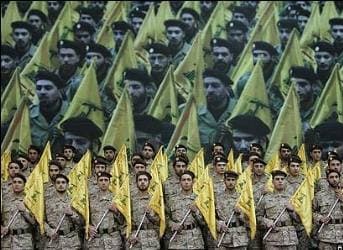Hezbollah, the pro-Iranian Lebanese Shiite organization, designated as a terrorist organization by the United States and Israel, posted a Christmas greeting to all Christians in the world, but particularly those in the Middle East, on its web site.
“Hezbollah congratulates Christians and Muslims in Lebanon and across the world on the birth of Jesus Christ (pbuh).
Muslims will almost always add the words, peace be upon Him, (or shortened as pbuh), whenever they mention the name of their prophet Mohammad. Muslims believe Jesus Christ was a prophet, not God, and they revere him as such, and will add the words “salallah a’aleyhi wa sallam,” which loosely translates into peace be upon him.
Christmas greeting and well wishes from an Islamist terrorist organization might surprise many people in the West who since the 9/11 terrorist attacks against the World Trace Center in New York and the Pentagon, just outside Washington, DC, in 2001, have become more accustomed to seeing, or at least expecting, acts of violence from what has often been described as one of the world’s most dangerous terrorist organizations.
But is Hezbollah truly a terrorist outfit? The answer to that question is both yes and no.
Yes, it has committed acts that easily fall under the label of terrorism, but as the organization’s number two, Sheik Naim Qassem told me a few years ago when I interviewed him in his office in Beirut’s southern suburbs, that was in the past.
When we came around to discussing the question of terrorism I mentioned the fact that Hezbollah was believed to have been responsible for the terrorist attack on the US embassy in Beirut in 1983 and the subsequent attack on the US Marines barracks at Beirut Airport a few months later that killed 241 US servicemen. Qassem’s reply was that first there was no proof that it was Hezbollah that was responsible for those attacks. He then added, “even if we were, though I am not admitting we were, we have changed.”
The deputy secretary general of Hezbollah indicated that his organization had changed as the political climate in the country had changed, which it had indeed changed. As anyone who has studied conflict resolution will attest, change brings conflict. Sometimes that can be good and at other times it can be problematic. Hezbollah’s initial change from engaging in what was described as acts of terrorism to becoming more involved in engaging other parties in Lebanon in a political dialogue was very constructive. However, more recent changes in the organization’s political directive has not been positive and have cost the organization the loss of many followers, particularly among the Lebanese Christian population.
The unabashed support the Shiite organization had shown towards the government of Syrian president Bashar Assad in his brutal retaliation against the anti-government uprising has also brought the group criticism from many of their own followers within the movement.
Indeed, one may question why does Hezbollah and its secretary general Sayed Hassan Nasrallah elects to so blindly support the Syrian regime? Other than the fact that Hezbollah considers Syria’s Alawites natural allies given that the Alawites are an offshoot of Shiism, there seems to be no other viable reason. True, Syria has in the past stood by and aided and supported Hezbollah and perhaps that is something that Nasrallah does not want to forget.
The fear amongst many Lebanese Shiites is that they will be held accountable for the party’s support of the regime in Damascus once it falls and retaliatory actions begin to take place, something that despite multiple warnings will occur.
By. Claude Salhani
Claude Salhani, a specialist in conflict resolution, is an independent journalist, political analyst and author of several books on the region. His latest book, 'Islam Without a Veil,' is published by Potomac Books. He tweets @claudesalhani.


















